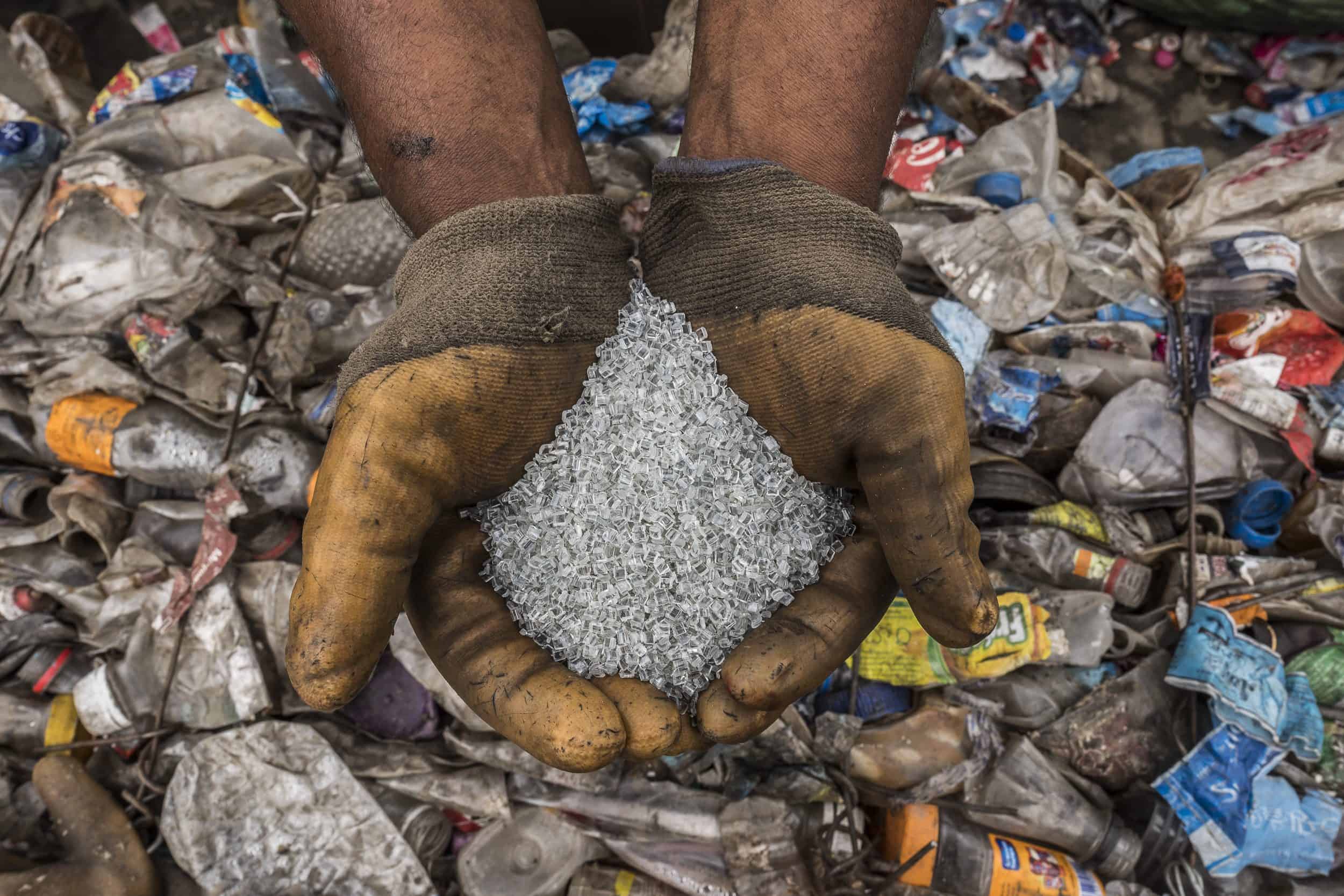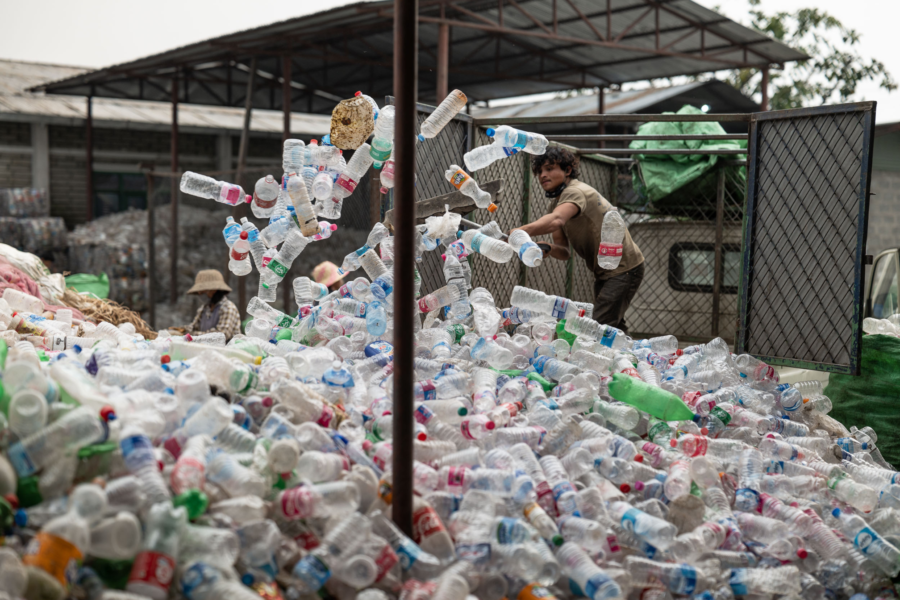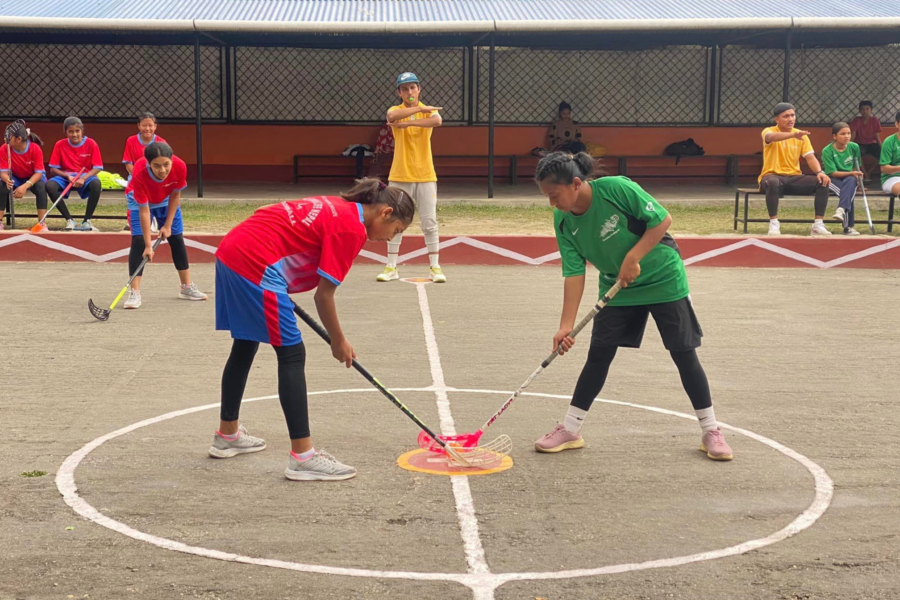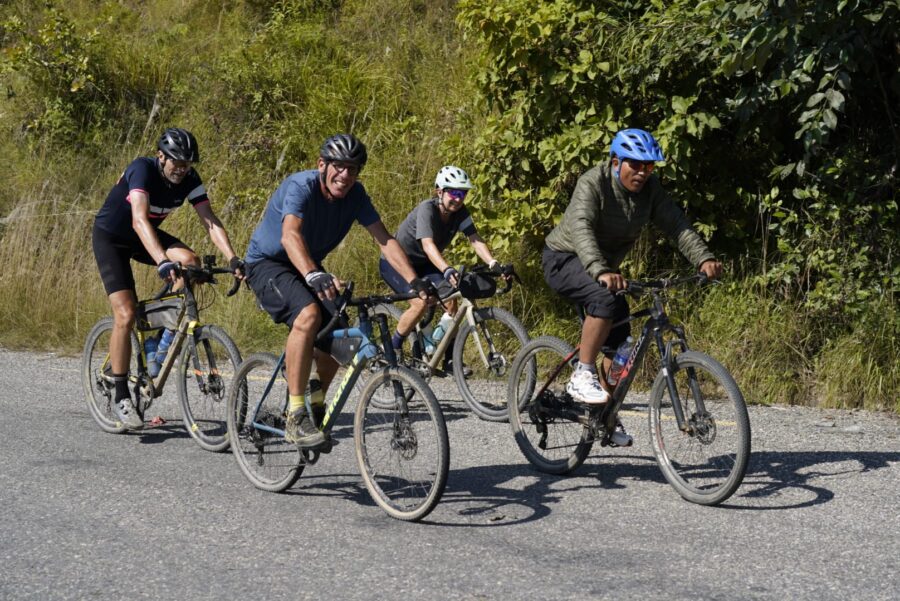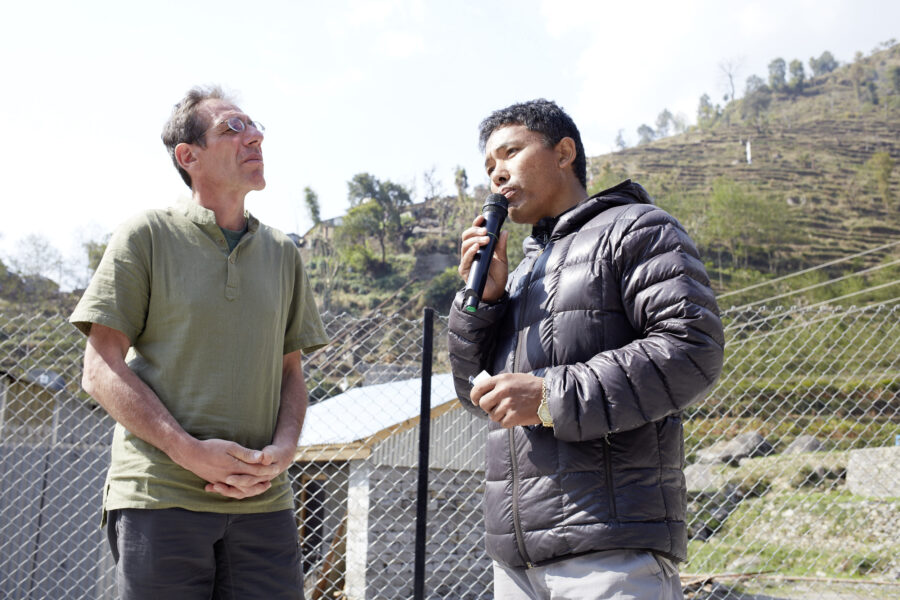One of the most impactful moments for me on our journey through Nepal was on our tour of the recycling plant in Pokhara. But, the impact actually began the day before, at the street kitchen.
We went in the morning, just before mealtime. I remember the smell, and the eyes of the boys. The air was thick with the scent of glue, the street drug of choice. Glazed eyes haunted all the faces, from the smallest boys to the skinniest teenagers, and every age of adolescence in between. Some were half heartedly colouring, some clapping to music, some not moving at all. We learnt that most had no family to call their own except an estranged band of brothers: the unseen world of street kids who have been discarded like trash to the gutters. The meal at the street kitchen is likely the only one they will receive in a day, and the women who cook it work tirelessly to put a plate of dal bhat in the empty hands, knowing this is likely the only act of love they will receive too.
Next we ventured to the shelter. The kids have to let go of their glue addiction to sleep here, for this is a safe and clean sanctuary. The sun was glowing over a giant green field where they play sports like soccer or hockey, or just run freely, soaking up the simplicity of being kids for the first time. We noticed a line up of mountain bikes, a passion for many of the boys. The lightness of the air was is a stark contrast to the street kitchen. Light breaks through into every corner.
Later in the evening, we were invited to visit a group of the older guys who live together at the Halfway House. Like the kids we met in the morning, each of these young men spent their early years hidden on the streets, discarded by their families, treated lower than dirt, addicted to the mind numbing glue. At some point, they would have found the street kitchen, then the shelter, then maybe school or vocational training, and have ended up at the Halfway House. They were all strong and smiling, with bright eyes and big dreams. They fed us a delicious noodle dinner. We learnt that one wants to train to be a chef, and we started asking the others what their dreams were. One wanted to be a musician and he played us a few beautiful songs on his guitar, one wanted to be a carpenter, one a driver, another wanted to work at the recycling plant. We were all struck by how familiar these hopes were to our own; to any other young person around the world who dares to ask life for a purpose.
The following day, Daniel toured us at the recycling plant. He walked us through the simple process of turning an old plastic bottle into a new one. It starts on the street. We learnt that every old, discarded, dirty, and unwanted bottle is painstakingly picked up off the side of the road and is brought to the plant. Women sit in front of mountains of bottles and hand sort each one. On some bottles, the labels are attached by such a strong adhesive that it wouldn’t be possible to send through processing. But, instead of tossing these bottles, they see the worth and potential in the plastic and take time to cut out the offensive glue and label. From here, the bottles pass through one refining process after another, sifted through water and heat, until the plastic is clean and made new.
At the end of the line, we held in our hands a palmful of plastic pellets, shimmering like diamonds and translucent with light, and for some reason I thought of the young men at the Halfway House. These diamond-pellets are transformed into a new plastic bottle, ready to be filled with fresh water. This is a brand new bottle: once discarded on the streets, trampled underfoot, and treated as a blemish to society, their former story is now unrecognizable. New purpose. New life.
The theology started to fall into place.
How like the bottles, the boys are treated like trash on the streets, and are gathered up by loving hands. The glue is stripped away and cut out of their lives. They are refined until they come out on the other side, and once glazed over eyes now shimmer with light, ready to be filled. From Not Life, to Life.
All because another human being said, you are seen, you are valued, you are loved. You are worth transformation.
I remembered how after dinner at the Halfway House, the guys took us back to where we had started in the morning. Under the cover of dark night, we returned to the streets to see the kids. Standing on the side of the road near a bus depot, we didn’t see them at first, but we are told that this is how it goes: they see you before you see them. They are the unseen ones. Slowly they appeared around us, sniffing out of paper bags. We watched as the halfway house boys show them photos of the their own days living on the streets. They said, “See, this was me too! But it doesn’t have to be like this. There is another way, come find life!”
And standing with the glowing new plastic, I thought of the boys working at the plant, who go back to the streets everyday to gather up the forgotten bottles. How they say to the bottles, “See, this was me too! But it doesn’t have to be like this. There is another way, come find life!”
Daniel told us that before the recycling plant, Pokhara was littered with dirty plastic, but now, as you walk the streets, you don’t see a single forgotten bottle. Because they all have new Life.
– Bonnie Friesen

